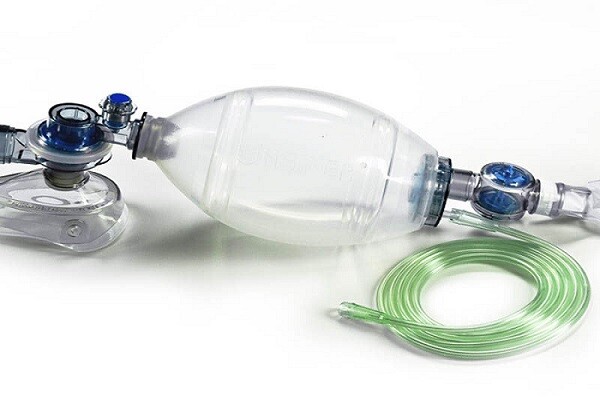Global Pharma 4.0: The Future of Pharmaceutical Industry
 |
| Global Pharma 4.0 |
The pharmaceutical industry is increasingly embracing
digital technologies and advanced analytics to drive innovation and efficiency.
Known as Pharma 4.0, this digital transformation promises to revolutionize how
drugs are researched, developed, manufactured and delivered to patients.
Emergence of Pharma 4.0
Pharma 4.0 builds upon previous industrial revolutions that have occurred in
the pharmaceutical sector over the past decades. Pharma 1.0 represented the
early industrialization and mass production of medicines. Pharma 2.0 introduced
new technologies like biologics and genomics to accelerate drug discovery.
Pharma 3.0 focused on data-driven R&D through clinical trial digitization
and real-world evidence.
Global
Pharma 4.0 takes this digital transformation to the next level by
combining various disruptive technologies under one umbrella. Key aspects of
Pharma 4.0 include artificial intelligence (AI), advanced analytics, Internet
of Things (IoT), cloud computing, 3D printing, virtual/augmented reality and
blockchain. When applied individually, each technology delivers benefits. But
their combined impact has the potential to revolutionize how value is delivered
across the pharmaceutical value chain.
Driving Innovation through AI and Advanced Analytics
AI and machine learning are playing a transformative role in drug discovery and
development. By analyzing huge amounts of complex biological and chemical data,
AI can help identify new disease targets and generate novel molecule designs at
an unprecedented speed. Advanced analytics also allows for more informed
clinical trial design and faster biomarker identification to enrich patient
populations.
Several pharmaceutical companies are already implementing AI to boost R&D
productivity. For instance, GlaxoSmithKline’s AI-based drug discovery platform,
Exscientia, has designed multiple pre-clinical candidates in less than 12
months. Startups like BenevolentAI and Atomwise are also applying deep learning
to generate promising pre-clinical leads. Going forward, AI is expected to
personalize treatment regimens based on a patient’s genetic profile and
real-world health data.
Improving Manufacturing Agility with IoT and 3D Printing
The IoT connectivity of industrial equipment, machinery and physical
infrastructure enables real-time data collection across pharmaceutical
manufacturing facilities. Advanced analytics of these data sets helps detect
production issues, optimize processes and improve overall equipment effectiveness.
It also facilitates remote monitoring and predictive maintenance of facilities.
3D printing or additive manufacturing has opened up new opportunities for
on-demand medicine production. This technology allows for personalized drug
formulations, complex dosage forms like implants and controlled release
preparations to be fabricated layer-by-layer with high precision according to a
digital design. 3D printing also enables on-site manufacturing closer to
patients for expedited access to customized therapies. Several drugs and
medical devices are currently being 3D printed for clinical use.
Transforming Clinical Trials with Virtual/Augmented Reality
Virtual and augmented reality (VR/AR) can help revolutionize clinical trials.
VR simulation of disease progression and treatment response enables more
informed patient consenting and better recruitment. It also facilitates remote
and decentralized trials by bringing parts of the clinical setting virtually to
patients’ homes. AR aids in adherence by overlaying medication reminders and
dosing instructions directly onto prescription bottles.
Advanced digital tools and simulations based on VR/AR are being studied to
reduce drug development timelines and costs. For example, Abbott is pursuing VR
simulations to predict device usability before building physical prototypes.
Overall, immersive digital technologies have the potential to not just speed up
trials but also make them more patient-centric and globally inclusive.
Ensuring Supply Chain Integrity with Blockchain
Blockchain technology brings transparency to pharmaceutical supply chains by
creating an indelible digital record of every transaction involving drugs,
medical supplies or clinical trial materials. Its distributed ledger
architecture allows supply chain participants like drug makers, distributors,
logistics firms, hospitals and patients to access and verify a single version
of transaction records in real-time.
This mitigates issues like counterfeiting, diversion of medicines, compliance
lapses and product recalls. Major companies are exploring how blockchain can
uniquely identify and track products through the entire supply chain. With
growing data integrity demands, blockchain is expected to reinforce trust
across complex global pharmaceutical networks and enhance patient safety.
Road Ahead for Digital Transformation
While promising huge opportunities, Pharma 4.0 also poses challenges associated
with transforming traditional business models, reskilling workforces and
protecting massive digital infrastructure from cyber threats. Significant
investments will be needed to drive pervasive adoption of emerging technologies
and achieve digital maturity. Regulators too must adapt to facilitate
innovation while ensuring oversight of new tools and approaches.
However, with COVID-19 accelerating pharma’s digital journey, majority of
companies now consider digital technologies critical to future growth.
Successful Pharma 4.0 pioneers will be those able to integrate disruptive
solutions seamlessly across functions, collaborate pre-competitively on data
standards and draw synergies between physical and digital spheres. This will
not just boost productivity and efficiency but also forge a more
patient-centric innovation culture that unlocks the true transformational
potential of converging technologies.
For
more insights, Read- https://www.rapidwebwire.com/global-pharma-4-0-the-future-of-pharmaceutical-manufacturing-is-here/



Comments
Post a Comment